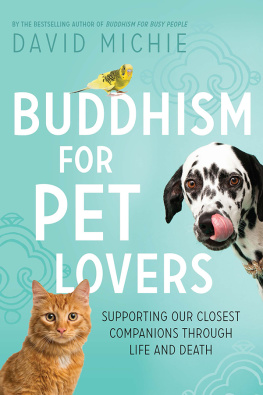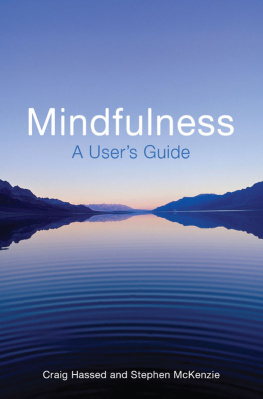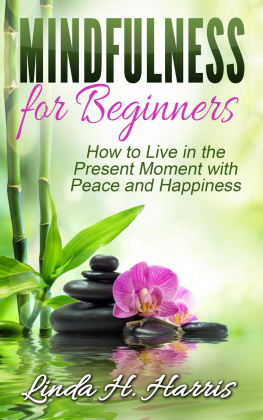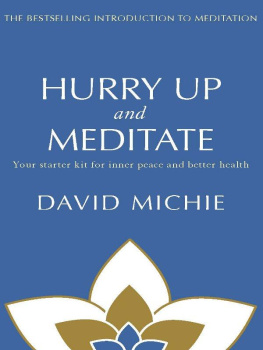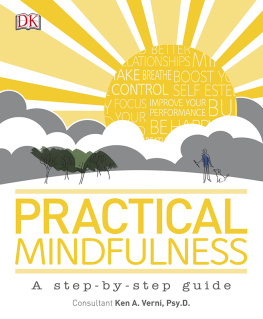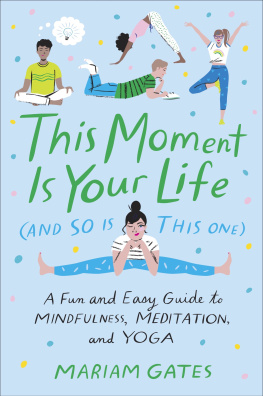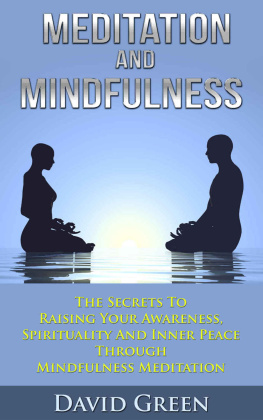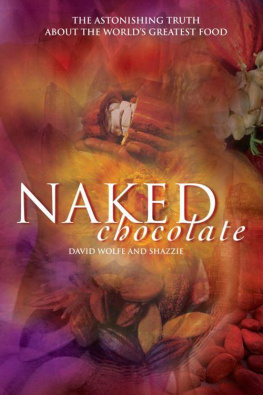About the author
DAVID MICHIE is an internationally published writer and meditation coach. He is the author of numerous books, including Hurry Up and Meditate, Buddhism for Busy People, Enlightenment to Go, and a series of novels featuring the Dalai Lamas cat.
Michie teaches mindfulness and meditation techniques to a wide variety of audiences, and has developed guided meditations to benefit both secular and Buddhist practitioners. The cofounder of Organisational Mindfulness, which caters to the corporate sector, Michie is a student of the Tibetan Buddhist Society and lives in Perth, Australia. Please visit www.davidmichie.com for more information.
PRAISE FOR
MINDFULNESS is better than CHOCOLATE
David Michie demonstrates a fine knack for capturing the essence of this important topic and presenting it in a fun and accessible way. In Mindfulness Is Better than Chocolate he perfectly explains what mindfulness is, why its important, and, most notably, how we can practice and integrate it into our lives. I know for a fact that mindfulness can enhance health and happiness; this book will help any reader become more mindful.
DR. TIMOTHY SHARP, The Happiness Institute
A delightful read, providing practical tools and examples around mindfulness and meditation; steeped in tradition, yet brought to life in the modern world. The topic is supported with considerable research examples which resonate with me as a practitioner in the field of positive psychology and it was a joy to see it done so clearly.
SUE LANGLEY, Emotional Intelligence Worldwide
A fascinating and illuminating journey into the many rewards that practicing mindfulness can bring: from stress release, to greater focus, to a deeper understanding of your own mind.
BETH PHELAN, World Happiness Forum
A practical and informed exposition of meditative techniques, complemented by a lucid scientific overview.
GORDON PARKER AO, Scientia Professor of Psychiatry, University of New South Wales
Essential reading for leaders who want to train their minds to engage in strategic thought.
EMERITUS PROFESSOR GARY MARTIN, CEO, Australian Institute of Management WA
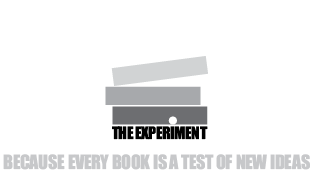
Also by David Michie
Buddhism for Busy People
Hurry Up and Meditate
Enlightenment To Go
The Dalai Lamas Cat
The Art of Purring
The Magician of Lhasa
MINDFULNESS IS BETTER THAN CHOCOLATE: A Practical Guide to Enhanced Focus and Lasting Happiness in a World of Distractions
Copyright 2014 Mosaic Reputation Management
First published in Australia in 2014 as Why Mindfulness Is Better Than Chocolate by Inspired Living, an imprint of Allen & Unwin.
All rights reserved. Except for brief passages quoted in newspaper, magazine, radio, television, or online reviews, no portion of this book may be reproduced, distributed, or transmitted in any form or by any means, electronic or mechanical, including photocopying, recording, or information storage or retrieval system, without the prior written permission of the publisher.
Many of the designations used by manufacturers and sellers to distinguish their products are claimed as trademarks. Where those designations appear in this book and The Experiment was aware of a trademark claim, the designations have been capitalized.
The Experiment, LLC
220 East 23rd Street, Suite 301
New York, NY 10010-4674
www.theexperimentpublishing.com
This book contains the opinions and ideas of its author. It is intended to provide helpful and informative material on the subjects addressed in the book. It is sold with the understanding that the author and publisher are not engaged in rendering medical, health, or any other kind of personal professional services in the book. The author and publisher specifically disclaim all responsibility for any liability, loss, or riskpersonal or otherwisethat is incurred as a consequence, directly or indirectly, of the use and application of any of the contents of this book.
The Experiments books are available at special discounts when purchased in bulk for premiums and sales promotions as well as for fund-raising or educational use. For details, contact us at .
Library of Congress Cataloging-in-Publication Data
Michie, David, author.
[Why mindfulness is better than chocolate]
Mindfulness is better than chocolate : a practical guide to enhanced focus and lasting happiness in a world of distractions / David Michie, PhD.
pages cm
Revised edition of: Why mindfulness is better than chocolate. 2014.
Includes bibliographical references and index.
ISBN 978-1-61519-258-8 (pbk.) -- ISBN 978-1-61519-259-5 (ebook) 1. Meditation--Therapeutic use. 2. Happiness. 3. Peace of mind. 4. Mindfulness-based cognitive therapy. 5. Self-actualization (Psychology) 6. Acceptance and commitment therapy. I. Title.
BF637.M4M54 2015
294.34435--dc23
2014035611
ISBN 978-1-61519-258-8
Ebook ISBN 978-1-61519-259-5
Cover design by Nita Ybarra
Cover photographs: stones Sintez/iStock photo.com. chocolate Viktor Lugovskoy / iStockphoto.com
Author photograph by Susan Cameron
Internal design by Alissa Dinallo
Manufactured in the United States of America
Distributed by Workman Publishing Company, Inc.
Distributed simultaneously in Canada by Thomas Allen & Son Ltd.
First printing October 2014
10 9 8 7 6 5 4 3 2 1
This book is dedicated with heartfelt gratitude to my Dharma teachers: Geshe Acharya Thubten Loden, founder of Australias Tibetan Buddhist Society; Les Sheehy, director of the Tibetan Buddhist Society in Perth, Western Australia; and the Venerable Acharya Zasep Tulku Rinpoche, founder of Gaden for the West. I can never repay their kindness, and without them this book could never have been written.
Contents
Is mindfulness really better than chocolate?
All of human unhappiness is due to the inability to sit still in a room alone.
BLAISE PASCAL
Is mindfulness really better than chocolate? Come to think of it, is anything better than chocolate? Or is the title of this book nothing more than a shameless ploy to grab your attention?
As it happens, the idea that mindfulness is better than chocolate is based on compelling research. More than 2,000 people in the United States took part in an innovative study using smartphone technology. Panel members were sent questions at different times of the day and night asking what they were doing, what they were thinking, and how happy they felt.
The analysis, published by Harvard University psychologists Matthew Killingsworth and Daniel Gilbert in Science magazine, revealed three important facts. First, people were not thinking about what they were doing 47 percent of the time. Second, people were unhappier when their minds were wandering than when they were not. And third, what people were thinking was a better predictor of their happiness than what they were doing.
The researchers summarized: A human mind is a wandering mind, and a wandering mind is an unhappy mind. The ability to think about what is not happening is a cognitive achievement that comes at an emotional cost.
Long ago, Buddhists reached much the same conclusion. An ancient tale tells of a novice who asked an enlightened monk to reveal the secret of happiness. The monk told him, I eat, and I walk and I sleep. When the novice replied that he also did these things, the monk replied, When I eat, I eat. When I walk, I walk. When I sleep, I sleep.
Buddha and the Harvard Psychology Department are most definitely on the same page when it comes to mindfulness. And the Harvard findings are rich with implications for human behavior.
Next page

